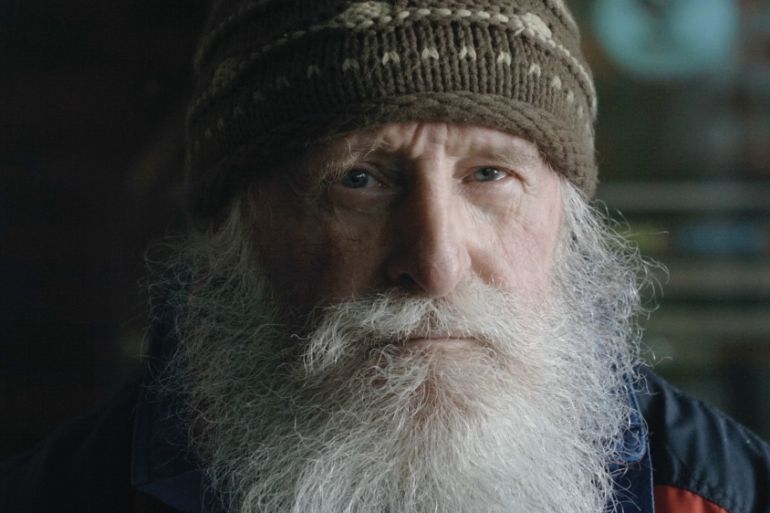
Finland’s Iron Grandpa
A 72-year-old Finnish weightlifter who has won four world championships is determined to win one final title.
Editor’s note: This film is no longer available to view online.
Esko Ketola is a 72-year-old Finnish four-time powerlifting world champion who is training for his last world championship, which is due to take place in Argentina. He is determined to take the stage again, before retiring and leaving the sport to younger competitors.
Keep reading
list of 4 itemsKiptum remembered in Kenya’s London marathon double
OJ Simpson dies after battle with cancer
British runner completes challenge to run length of Africa
Despite his advancing age and the concerns of his grandchildren, Esko wants to prove that a septuagenarian is strong enough to lift 200kg. Although he suffers an injury just before the event, this iron man refuses to give up on his dream of a fifth – and final – championship.
![Esko Ketola in his garden, shortly after he was injured [Lauri Harju]](/wp-content/uploads/2017/04/9d94359e094a4f048423a121763c2fda_18.jpeg)
FILMMAKER’S VIEW
By Terhi Romo
I was first introduced to Esko Ketola by his grandson, my co-director Janiv Oskar, in 2013. I was immediately deeply impressed by the four-time World Powerlifting Champion – a 72-year-old Santa Claus lookalike who would lift more than 200 kilogrammes in his front garden in the middle of Finnish winter.
I soon realised that Esko stood out for his willpower and knew I had stumbled across someone special.
In one of our earliest conversations, Esko said that the doctor had told him he should take it easy. “I said that if I quit training, I’ll soon be an old, frail grandpa. I’d be good for nothing,” Esko recounted.
Society often tells us that there are things we are not capable of achieving. Some people, for example, might think that Esko shouldn’t be lifting 200 kilogrammes due to his poor health and injuries. Esko’s joint capsule in his right hip ruptured a few months before he started training for his last powerlifting world championship in Argentina. But our “iron grandpa” is more likely to risk his health than to give up on his dream. Some people might call this foolhardiness, but he is living life in a way that makes him happy.
![Esko Ketola at the GPC World Bench Press and Powerlifting Championships in Slovakia, 2012 [Lauri Harju]](/wp-content/uploads/2017/04/22cbfa1e508f4fa784921a5971a0293d_18.jpeg)
Esko has been haunted as an athlete because in the early 1990s he twice tested positive for doping. Because of that, he was banned from all competitive sports for life. In the film Esko competes in championships by the Global Powerlifting Committee (GPC), which is not monitored by the Finnish anti-doping agency.
For me, it was difficult to comprehend why a once-tarnished reputation is so difficult to clear; time and new victories couldn’t change the fact that people saw him as a cheat.
After working on this project, I began to feel that the public and media discussion about doping is hypercritical. A shamed hero is not easily forgiven. And the shift from hero to reject can come about surprisingly easily.
When I first met Esko, I saw him as a hero – like those godly, powerful men you see in Greek plays, who never make mistakes. But I quickly learned that Esko is a flawed human being just like the rest of us who has had to learn through trial and error. I admired Esko’s unwavering determination to earn his good reputation back.
As Esko told me: “If you want something hard enough, you can get it. Only the weak give up.”